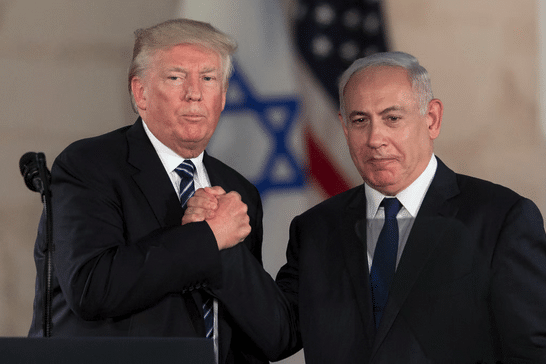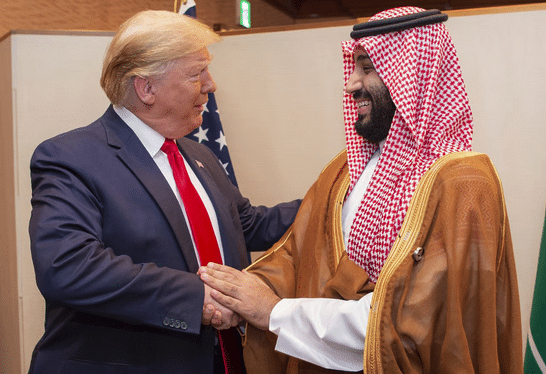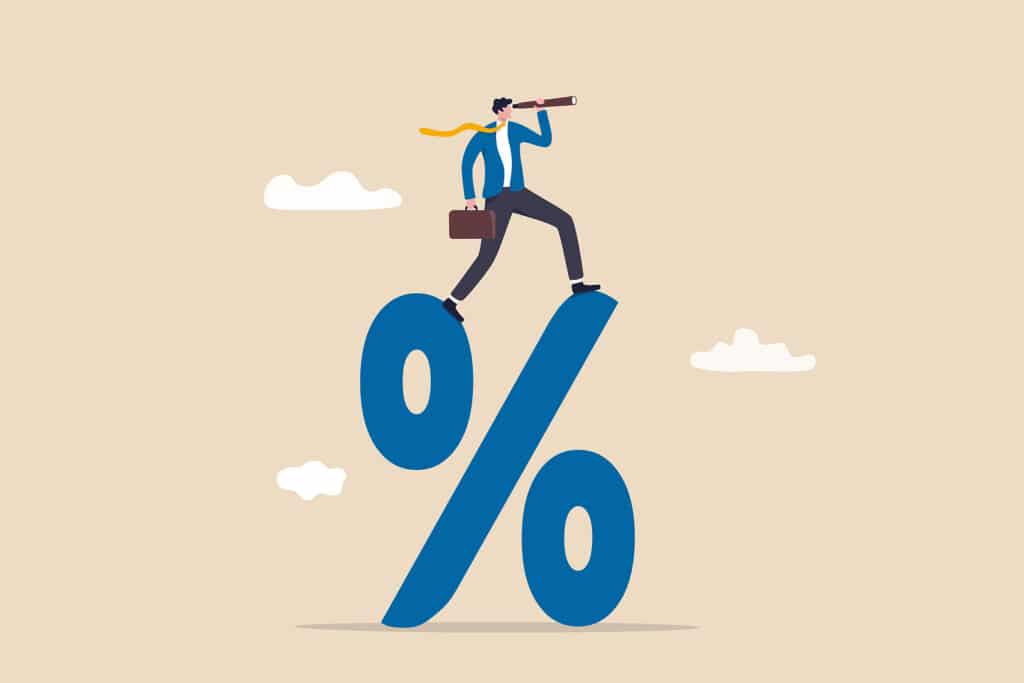Analysts warn both sides are likely to ‘take even more risks’ in the dying days of the Biden administration
With the Middle East teetering on the brink, the re-election of Donald Trump to the US presidency has raised fears of a renewed clash between Israel and Iran in the 10-week period leading up to his inauguration – despite him promising in his victory speech to “stop wars”.
Analysts warn that Israeli Prime Minister Benjamin Netanyahu, emboldened by the electoral success of his staunch ally Trump, may be tempted to act decisively against Tehran during the dying days of the Biden administration.
Shortly after the US election result became apparent, Trump and Netanyahu discussed “the Iranian threat” on a phone call alongside the need to enhance Israel’s security, according to a statement from the Israeli prime minister’s office.
The US president-elect wants the wars in the region “to end as soon as possible … with a decisive victory” for Israel, Trump campaign spokeswoman Elizabeth Pipko said in an interview with Israeli broadcaster Keshet 12 on Wednesday.
Netanyahu’s recent dismissal of Defence Minister Yoav Gallant, on the eve of Trump’s electoral win, only made the situation “even more precarious”, according to Mairav Zonszein, a senior Israel analyst at the New York-based Crisis Group risk consultancy.
“The chances that both sides will take even more risks” during the final weeks of outgoing President Joe Biden’s administration have increased, she said in a post on X.
“I think it’s safe to say that between Trump and Netanyahu, we are squarely going into the ‘escalation towards de-escalation’ paradigm.”
While Trump’s unpredictability remains a factor, he is likely to “urge Israel to wind up” its wars in Gaza and Lebanon before he officially takes office in late January, said Barbara Slavin, a distinguished Middle East fellow at the Stimson Centre think tank in Washington, citing remarks Trump made on the campaign trail.
Analysts believe Netanyahu is confident any agreements on ending the Gaza war which are reached post-inauguration will not compromise his long-standing goal of preventing Palestinian statehood.

On Tuesday, as Americans cast their votes, the Israeli Defence Forces announced that the division of northern Gaza into two parts had been completed.
“This time there is no intention to allow the residents of the northern Gaza Strip to return to their homes and that humanitarian aid will regularly enter the southern Gaza Strip – since there are no more civilians left north of Gaza City,” it said in a statement.
Slavin told This Week in Asia that Trump “will let Israel continue to occupy Gaza” and is likely to care “even less about Palestinian lives than Biden”.
She speculated that he might also give Israel a green light “to annex the West Bank or try to revive his ‘Deal of the Century’”, proposed in 2020, which would grant Israel 87 per cent of the occupied Palestinian territories while offering a disarmed Palestinian state US$50 billion in development funds over the span of a decade.

Palestinian analyst Ahmed Fouad al-Khatib, a senior fellow at the Atlantic Council think tank’s Scowcroft Security Initiative in Washington, said Trump may “very well succeed” in ending the war in Gaza.
“But the price he’ll offer Bibi, immediately or in the near term, will be the annexation of the West Bank, forever killing the possibility of a Palestinian state”, he said, referring to Netanyahu by a popular nickname.
Zonszein noted that Trump’s former ambassador to Israel, David Friedman, had recently published a book “which is effectively a blueprint for how Israel should annex the West Bank, perfectly aligned with the far-right in the Netanyahu government”.
She described the book, One Jewish State: The Last Best Hope to Resolve the Israeli-Palestinian Conflict, as a “window into what Trump … may help Israel do”.

Normalisation redux?
Faced with public outrage over the ongoing conflicts in Gaza and Lebanon, Arab leaders are expected to tread cautiously in their dealings with a second Trump administration, even as they continue to pursue improved relations with Iran.
The Saudi foreign ministry quickly congratulated Trump following his electoral victory, with Crown Prince Mohammed bin Salman – alongside Netanyahu – being among the first world leaders to call him.
During the call, Saudi Arabia’s de facto leader “expressed the kingdom’s aspiration to strengthen the historical and strategic relations” with the US, according to an official statement released later that made no mention of the wider crisis in the Middle East.
Independent Saudi analyst Aziz al-Ghashian interpreted this response as a sign that Riyadh will be “keen but measured” in its cooperation with the new administration.

Despite recent declarations from Saudi Foreign Minister Prince Faisal bin Farhan that normalisation with Israel is “off the table until we have a resolution to a Palestinian state”, Stimson Centre’s Slavin expects Trump will try to add Saudi Arabia to the 2020 Abraham Accords – under which Bahrain, Morocco and the United Arab Emirates established diplomatic relations with Israel – using “massive bribes of weapons and nuclear technology”.
However, analysts warn that continued Israeli aggression towards Palestinians could destabilise the already fragile pro-US regimes in the region – concerns that leaders such as Egypt’s President Abdel Fatah el-Sisi and Jordan’s King Abdullah, who already enjoy a personal rapport with Trump, are expected to communicate to him.
Trump’s incoming administration is also unlikely to pursue a peace deal with Iran, despite his recent comments suggesting openness to negotiations. His team is filled with anti-Iran hawks, and reports of Iranian plots against Trump – stemming from his order to assassinate Qassem Soleimani – have likely “further antagonised” the incoming US president against Iran, according to Farzan Sabet, a senior research associate of the Global Governance Centre, a Geneva think tank.
The overall security landscape in the Middle East suggests that Trump’s administration will adopt a hardline stance against Iran, Sabet said.
The US and Iran “are more firmly on the path to direct conflict than at any time” since the end of the Iran-Iraq War in the 1980s, he said.
In response to Trump’s election, Iranian foreign ministry spokesman Esmaeil Baghaei said on Thursday that it presents an opportunity to “review previous wrong policies”. reflecting the bitter experiences with past US administrations.
“We have very bitter experiences with the policies and approaches of different US governments in the past,” he added.
While Slavin believes that Trump does “not want a war with Iran and so will restrain Israel from starting one that drags the US in”, she cast doubts over his ability to negotiate a favourable deal.
Much will depend on whether Iranian Vice-President Javad Zarif and other officials in Tehran can devise an agreement “that makes Trump look good, without making Iran look like it’s caving completely”, she said.
Read the complete article HERE.


